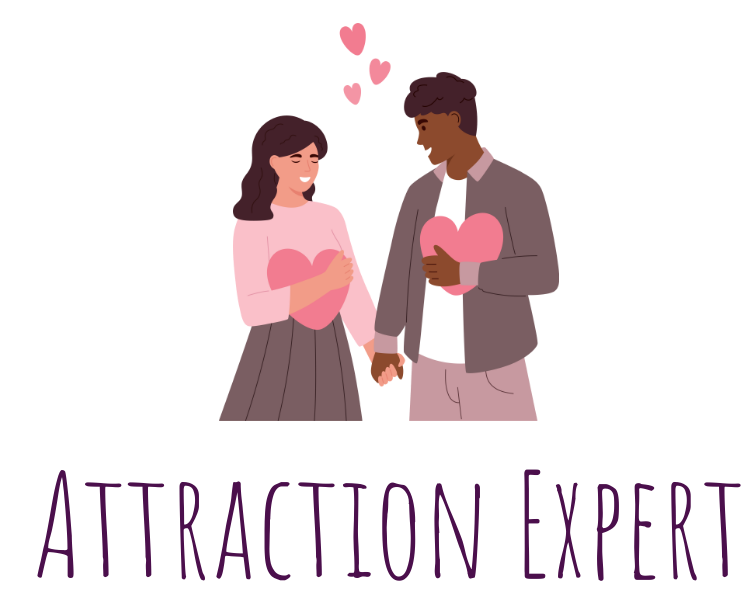Are you torn between blocking or ignoring someone in your life? It's a tough decision, but don't worry, we've got your back.
Picture this: by choosing to ignore, you open a door for future explanations and the opportunity to mend strained relationships. It's especially helpful when the person's actions are forgivable, but you want some space.
Plus, if you tend to overreact, ignoring can maintain peace. Remember, self-care matters, so let's explore why ignoring might just be the wise choice for you.
Key Takeaways
- Blocking is appropriate when the person has caused significant damage, whether mental, financial, or physical.
- Blocking is recommended if you want to end the relationship and the person refuses to understand.
- Ignoring is suitable when the person's actions are forgivable but you don't want to completely estrange them.
- If you tend to overreact to small matters, ignoring the situation might be the best course of action.
Reasons to Block
Blocking is a necessary measure when someone's actions have crossed a limit and are unforgivable. It's crucial to prioritize your mental well-being and protect yourself from further harm. Blocking allows you to create a safe space where you can heal and regain your peace of mind.
By cutting off contact with the person who's caused damage, you can prevent their toxic influence from affecting your mental health. Ignoring, on the other hand, can lead to potential misunderstandings. When you choose to ignore, the other person may not fully grasp the impact of their actions, leaving room for miscommunication and unresolved issues.
Blocking provides a clear boundary and sends a strong message that you won't tolerate disrespect. It empowers you to take control of your life and assert your worth.
Situations to Block
To protect yourself from further harm and maintain your mental well-being, it's important to identify the situations where blocking is necessary. Here are three situations where blocking is crucial:
- Blocking toxic individuals: When someone consistently brings negativity into your life, it's essential to block them. Toxic individuals can drain your energy, manipulate you, and hinder your personal growth. By blocking them, you're taking a stand for yourself and prioritizing your own well-being.
- Dealing with online harassment: Online harassment can have severe psychological effects, causing anxiety, depression, and feelings of insecurity. If someone is constantly harassing you online, sending hateful messages or threats, blocking them can help create a safe space for yourself and protect your mental health.
- Protecting yourself from stalkers: If someone is stalking you and making you feel unsafe, blocking them is necessary. Stalkers invade your personal space, violate your boundaries, and can even escalate to physical harm. Blocking them not only removes their access to your life but also sends a clear message that their behavior is unacceptable.
Other Considerations for Blocking
Consider your personal goals and priorities when deciding whether or not to block someone. Blocking can have a significant impact on your mental well-being and is a strategy for creating healthy boundaries in relationships. To help you make an informed decision, here are some other considerations for blocking:
| Consideration | Explanation |
|---|---|
| Moving on from an ex | Blocking your ex can help create distance and assist in the process of moving on. |
| Protecting yourself from harmful influences | Blocking someone toxic who has a negative influence on your well-being is necessary for your mental health and overall happiness. |
| Maintaining a sense of peace and closure | Blocking can provide closure in situations where the person refuses to understand or respect your boundaries. |
| Preserving good memories and cherishing moments | Ignoring the person instead of blocking them can allow you to keep the positive memories and cherish the moments you shared together. |
| Avoiding giving satisfaction to the other person | If blocking the person will give them satisfaction, it may be better to ignore them and remain indifferent. |
Reasons to Ignore
When deciding whether to ignore someone, there are several reasons why it may be a wise choice. Here are three reasons to consider:
- Handling misunderstandings: Ignoring someone gives you the opportunity to let emotions cool down and approach the situation with a clearer mind. It allows space for future explanations and the chance to address any misunderstandings that may have occurred.
- Dealing with forgivable actions: Sometimes, the actions of the person may be hurtful or upsetting, but still forgivable. Ignoring them temporarily allows you to maintain a relationship without completely cutting them off. It gives both parties a chance to reflect and work towards resolving the issue.
- Preserving cherished moments: Ignoring can be a way to hold on to the good memories and moments shared with the person. By choosing to ignore rather than block, you're able to maintain a sense of connection while still setting boundaries.
Situations to Ignore
You can choose to ignore situations where the person's actions are minor and not worth making a fuss over. Ignoring these situations can have several benefits. It allows you to maintain open lines of communication, keeping the window for future explanations open. Ignoring also gives you the opportunity to go back and fix things in the relationship, especially if there has been a misunderstanding. By ignoring minor issues, you can prevent the complete estrangement of the person involved while still maintaining a level of forgiveness and understanding. It's important to remember that effective communication strategies can help in resolving conflicts when choosing to ignore. Overall, ignoring minor situations can help preserve relationships and create a more harmonious environment.
| Benefits of maintaining communication | Strategies for effective communication |
|---|---|
| Keeps the window for future explanations open | Listen actively and empathetically |
| Allows a chance to go back and fix things | Use clear and concise language |
| Prevents complete estrangement | Practice active problem-solving |
| Preserves relationships and fosters understanding | Show respect and validate the other person's feelings |
Other Considerations for Ignoring
Now let's delve into some additional factors to keep in mind when choosing to ignore certain situations. Here are three important considerations for ignoring:
- Long term effects: Ignoring a situation can have long term effects on your well-being and relationships. It's important to consider whether ignoring the situation will lead to unresolved issues or create a rift that may be difficult to mend in the future. Think about the potential consequences and weigh them against the temporary relief of ignoring.
- Communication strategies: Ignoring doesn't mean avoiding communication altogether. It's important to find alternative ways to express your feelings and concerns without engaging in negative or harmful interactions. Consider using assertive communication techniques to clearly convey your boundaries and expectations while maintaining respect for yourself and others.
- Empathy and understanding: Ignoring doesn't mean dismissing the other person's feelings or perspective. It's crucial to approach the situation with empathy and understanding, recognizing that everyone has their own experiences and emotions. By taking the time to understand the other person's point of view, you may be able to find common ground and work towards a resolution that benefits both parties.
Overall Considerations
An important consideration for overall decision-making is prioritizing your own self-care and not tolerating anyone who doesn't appreciate your qualities.
When it comes to the choice between blocking or ignoring someone, it's crucial to take into account the importance of self-care in decision making. Blocking is the best choice if the person's actions are unforgivable and have crossed a limit. It's also recommended if you want to end the relationship and the person refuses to understand.
On the other hand, ignoring is suitable when the person's actions are forgivable but you don't want to completely estrange them. It allows for a chance to go back and fix things in the relationship. Moreover, it's important to recognize the impact of forgiveness in maintaining relationships. By choosing to ignore, you leave the window open for future explanations and the opportunity to mend misunderstandings.
Conclusion
To conclude, considering the impact on your well-being and the circumstances surrounding the relationship, it's important to carefully weigh the options of blocking or ignoring someone. Both blocking and ignoring have their pros and cons in conflicts, and they can have a significant impact on relationships.
Here are three key points to consider:
- Blocking can provide a sense of finality and empowerment, allowing you to protect yourself from further harm. However, it may also permanently sever the relationship and prevent any chance of reconciliation or understanding.
- Ignoring, on the other hand, keeps the door open for future explanations and the opportunity to mend the relationship. It can be a wise choice when the person's actions are forgivable and you don't want to completely cut them off. However, it may also lead to unresolved issues and prolong the discomfort.
- Ultimately, the decision to block or ignore should prioritize your own well-being and what feels right for you. Consider the nature of the relationship, the severity of the conflict, and your own tendencies in handling conflicts. Remember, serving yourself means finding the balance between protecting yourself and maintaining healthy relationships.
Frequently Asked Questions
How Can Blocking Someone Help in Prioritizing Self-Care?
Blocking someone can help prioritize self-care by protecting your mental well-being and establishing boundaries in relationships. It allows you to remove toxic influences and create a safe space for yourself to focus on your own needs and happiness.
What Are Some Signs That Indicate It Is Necessary to Block Someone?
If you notice signs of toxic behavior, such as threats or harassment, it may be necessary to block someone. Blocking can protect your mental health and create boundaries for your well-being.
When Is Ignoring a Better Option Than Blocking Someone?
Ignoring toxic behavior can be a better option than blocking someone. It allows you to set boundaries while leaving room for future explanations and the possibility of fixing the relationship. It shows empathy and promotes growth.
How Can Ignoring Someone Help in Maintaining a Positive Relationship?
Ignoring someone can help maintain a positive relationship by giving you time to cool down and consider your response. It allows for open communication and the opportunity to address misunderstandings, ultimately maintaining healthy boundaries and fostering understanding.
What Are Some Factors to Consider When Deciding Whether to Block or Ignore Someone?
When deciding whether to block or ignore someone, it's important to consider factors like the severity of their actions, your own emotional well-being, and whether you want to maintain a relationship. Setting boundaries is crucial when dealing with difficult individuals.
Conclusion
In the end, the decision to block or ignore someone ultimately depends on the specific circumstances and your personal values. Blocking may provide immediate relief and protection, but it may also sever any chance of reconciliation.
On the other hand, ignoring allows for potential understanding and future growth, but it requires patience and tolerance. Consider the impact on your well-being, the value of the relationship, and your own boundaries.
Trust your intuition and make the choice that aligns with your values and promotes your overall well-being.
- Best Ukrainian Dating Sites And Apps - December 4, 2023
- Best Christian Dating Sites In 2023 - November 28, 2023
- What Do You Think When A Guy Holds Your Hand On First Date? - October 28, 2023

